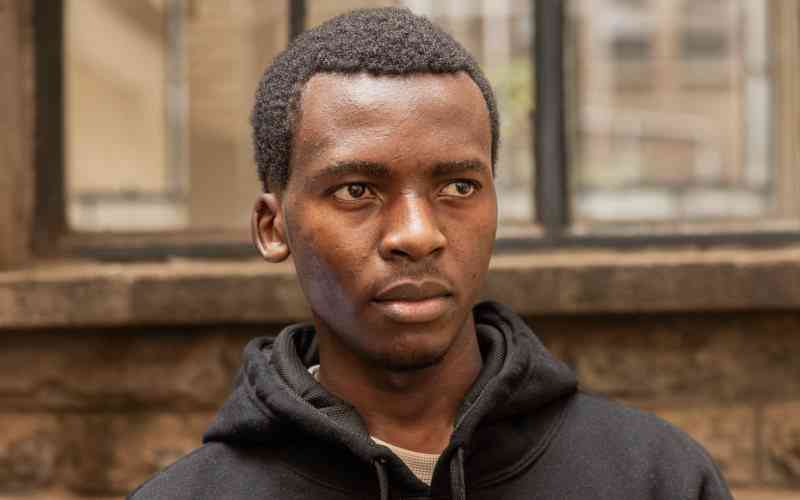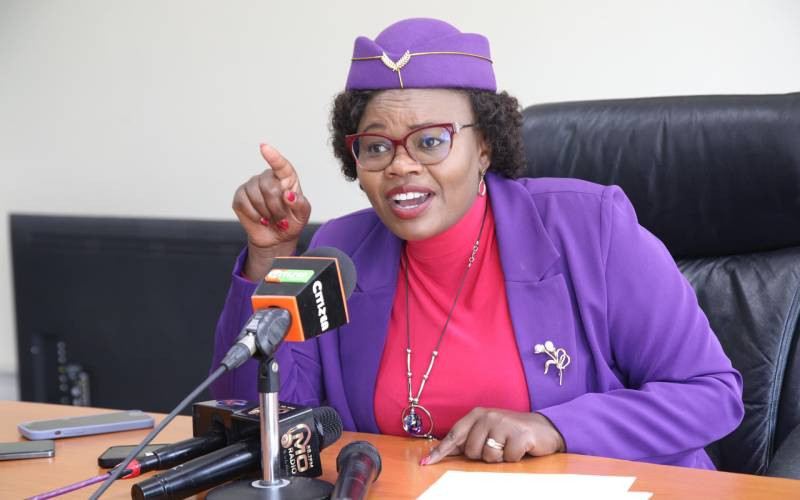Nadav Lapid on 'Yes,' Cannes' Most Provocative Movie
“I truly don’t understand when the word ‘safe’ became positive in cinema and the word ‘dangerous’ became negative,” Nadav Lapid told IndieWire about his bold new film “Yes” at Cannes.
The most volatile, potentially conversation-stirring movie of the festival was one most attendees probably didn’t see. Not “Eddington,” not “Die, My Love,” but a late-breaker in the lineup whose director rushed to finish it before any red carpets rolled out on the Croisette.
Israeli filmmaker Lapid has been in the Cannes competition before, with 2021’s Jury Prize winner “Ahed’s Knee,” which centers on a director facing artistic censorship over his latest movie about a Palestinian activist. But there was no competition bow this year for Lapid’s in-your-face musical satire about a pair of Israeli artists who sign their souls over to a Russian oligarch to craft a post-October 7 nationalist anthem in support of their state. Instead, “Yes” premiered in the final days of the festival in the Directors’ Fortnight section (and also since listed among IndieWire’s top films of the festival).
Here is a filmmaker ever in conversation with his homeland, but one who’s become increasingly wary of it from afar, living in Paris, even while insisting his films aren’t explicitly political.
“I am saying what my press agent told me to say when I am asked why the film is not in the competition,” Lapid told IndieWire on the Croisette beach at Cannes a day before “Yes” premiered. “More or less everyone asks this question. What she told me to say is, ‘Maybe it’s a question that should be addressed to the people who selected the film, and not to you.'”
Lapid, who said he is not good at being “diplomatic,” added, “Then, she told me to say that I should say, ‘I don’t know. Maybe the film was too disturbing. Maybe someone was afraid.’ What I can say is that the film, during its whole [production], and also when it ended, became — unwillingly — a kind of tool which measures cowardice and courage, to distinguish between the cowardly ones and the courageous ones.”
Actors and financiers were cast and brought on — contractual ink still drying — but people started backing out, even below-the-line crew, both ahead of and during the production. Other performers were cast, and ultimately dropped out, in the film before it finally shot in Israel, including in Tel Aviv, last year.
“There were several actors, well-known ones, who auditioned for the film, got the role, were extremely happy. Two weeks later, or one week later, or 10 days later, their agents called to say they would not do the role because of ABCDEFG,” Lapid said. “One of the them told me she would not do the role because of the way the head of staff … was shown in the script. Some of them were afraid. There were agents who told their actors it was better to keep a distance from this film. Some were afraid about their career. Some of them felt that, in a time of war, there’s no legitimacy for such a voice.”
He added, “Dozens of technicians, technician people [left the production] … each day, when someone got sick, when someone called and said, ‘I have a fever,’ we knew. … The executive producer told them, ‘You want to quit, don’t you?'”
For those who stayed on? “Suddenly, it became courageous to do makeup, or put a lamp [on set] or to do a dolly,” Lapid said.
“We shot the film in an ambience in fear and paranoia because we were afraid to be denounced. We reduced [in terms of crew and cast] — there was only one monitor on set because we were afraid someone would do something he doesn’t like and will denounce us. ‘False script, fake synopsis.’ It was a little bit like shooting a film in the land of the country of the enemy,” Lapid said.

Lapid started writing the debauched musical tragedy that became “Yes” well before Hamas’ terrorist attack on Israel on October 7, 2023. The screenplay changed after that day, and actively kept evolving amid the early months of Israeli military’s assault on Gaza. Lapid and the crew he was able to assemble ultimately shot the film in Israel and, in one harrowing scene, against the rim of the war zone alongside the Gaza border. It’s where the protagonist, jazz musician Y (Ariel Bronz), goes, in bleach-blonde hair, to get closer the action and to find perhaps a deeper connection to the pro-military song he’s agreed to write.
“In the movie, there is an act of kissing in front of Gaza. Don’t we all kiss in front of a lot of Gazas?,” Lapid said of a scene where Y hooks up with his ex-girlfriend (Naama Preis), an IDF officer who excruciatingly details, in a long emotional diatribe that is the one of the film’s emotional centers, violence done upon Israelis by Hamas. But Lapid, who also spent time in the Israeli military, does not let his government off the hook for the atrocities and military actions done in response to that violence.
The resulting, pungent, hard-to-shake film “Yes,” in its nearly two-and-a-half orgiastic hours of maximalist visual excess, stars Bronz as Y (the same anonymity-suggesting moniker Lapid applied to his filmmaker lead in “Ahed’s Knee”) and Efrat Dor as his wife Yasmine, a hip-hop dancer, who are now raising a child in Tel Aviv when the fallout of October 7 hits.
Their marriage is already frayed despite polyamorous, drug-spiked orgies they participate in for the rich’s amusement. Y takes a deal offered by a Trump-styled Russian moneyman (Alexey Serebryakov, in yellow face paint to evoke, well, yes, a certain man) to write an anthem that forces the couple’s own latent political interests and disinterests to a relationship-shattering head. (The lyrics to the song, it turns out, come from the actual words of an anti-Palestinian activist group called Civic Front, as revealed in the end credits.)
“I wanted to make a film about the weakness of artists in our world, the weakness of artists facing the power of money and politics, the weakness of artists who are not capable anymore to say ‘no,’ who are doomed to say ‘yes’ in a bad world,” Lapid said. “It was [always] supposed to be shot in Israel, but it could’ve been shot all over the globe. And then came the 7th of October, and it kept telling me, ‘You’re an Israeli: Before talking about the death of art, talk about death.'”
“Yes,” unsurprisingly, still does not have an Israeli distributor (nor a U.S. one so far), a first for director Lapid, whose films like “Synonyms” and “Policeman” have resonated globally including in his native country in terms of release. (“The Kindergarten Teacher,” about how a teacher’s devotion to a precocious pupil capsizes her world, even inspired a Maggie Gyllenhaal-led Netflix remake in 2018.)

That’s despite the Israeli Film Fund listed among the financiers on “Yes,” not uncommon for productions shot on state land. Lapid wasn’t sure, as of a few days before the film’s Cannes premiere, that the Israeli government even knew of the movie’s existence. “I don’t reduce it to an anti-Israeli film,” he said. “At the same time, it looks straight into the eyes of a place that experienced a terrible shock and reacted to it doing the worst possible.”
He continued by speaking more generally to a question in art that’s plaguing us all, as movies perhaps become more passive in their audience-hand-holding: “Maybe I’m kind of stupid, but I truly don’t understand when the word ‘safe’ became positive in cinema and the word ‘dangerous’ became negative. What does it mean, a movie that doesn’t contain danger? A movie that doesn’t contain risks? A movie that doesn’t jump into a swimming pool of crocodiles?”
But the potential dangers of the movie didn’t scare Lapid away from making an unflinching critique of his own country, yet also of the world, as Y and Yasmine start to question their own project and place in history. He said, “Don’t we live in an extremely crazy, wild world, and so movies should be less wild than the world in which they are created? It’s very strange the idea that when you are out of the cinema, you see wilder things than when you are inside the theater. I feel truly that there are few films, not enough films, that tell the story of our world. We are often amazed when we look at the news, the social media; we are not so amazed see a movie.”
“Ahed’s Knee” producer Judith Lou Lévy initially helped bring on supporters in France via her Les Films du Bal, but additional French resources tapped out after October 7. Lapid was able to achieve the vision for reportedly his most expensive film (at more than $4.5 million U.S.) with help from Jaffa-based Bustan Films and France’s Chi-Fou-Mi (via Screen Daily) after the war began.
Lévy has defended her support of the film even against moments of possibly halting the production. The idea of an entirely Israeli crew became impossible. People from within were afraid. As “Yes” went into production in Israel a year after October 7, the bombs overhead on the soundtrack and smoke in the view are often real. It will take an intrepid distributor to sell this provocative movie anywhere.
“I can imagine that those people who weren’t courageous enough in the cinema,” Lapid said of those who bailed on “Yes,” “I can imagine that maybe they shouldn’t be so proud at themselves. I can imagine that maybe they are not so happy to look at themselves in the mirror.”
One of the movie’s revolving early motifs shows Y and Yasmine getting push notifications about the latest terrible disaster news circa October 7, but they keep going on about their day, though the soundtrack pushes in screams and clamors of warfare as the couple makes their breakfast with “oh, OK” indifference.
“It’s the state of things. We cut a cucumber, we read a notification about the massacre, and we keep on cutting the cucumber,” Lapid said.
“Yes” premiered at the 2025 Cannes Film Festival. It is currently seeking U.S. distribution.












:max_bytes(150000):strip_icc()/cynthia-nixon-rosie-o-donnell-and-just-like-that-tout-052725-fc3e615234d34a118c2a42b58bcf60cd.jpg)
:max_bytes(150000):strip_icc()/snl50-red-carpet-eddie-murphy-052925-ef24bc9f42d545438a638bc78042e6ca.jpg)
